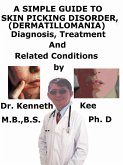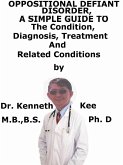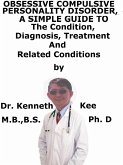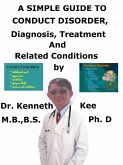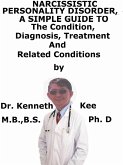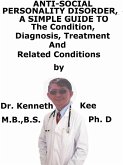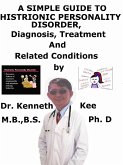Nail-biting disorder, often termed Onychophagia, is a compulsive habit of biting one's nails.
It can happen in both children and adults and is considered a type of body-focused repetitive behavior (BFRB).
It is mostly observed in children and adolescents and may be stress-induced.
Nail-Biting disorder is linked with a host of psychological disorders including obsessive compulsive disorder and attention deficit hyperactivity disorder (ADHD)
Nail-biting disorder can lead to nail and soft tissue infections.
Besides deformed nails, the child may also develop mouth and gum injuries, jaw pain, and teeth deformities
The precise cause of Nail-biting disorder is not known, but it may be probably linked to a host of underlying psychological disorders:
Nail biting often results as a reaction to stress, anxiety, or nervousness
Children may choose to bite their nails as a form of stress-relief
People who have perfectionist tendencies may choose to bite their nails as a method to relieve tension or look for perfection.
Nail biting can be learned by patients observing others, particularly family members who also engage in the habit.
Some patients may bite their nails out of boredom or when their hands are idle.
Nail-biting disorder has been linked to:
Obsessive compulsive disorder
Attention deficit hyperactivity disorder (ADHD)
Separation anxiety disorder
Hair-pulling disorder (Trichotillomania)
Skin-eating disorder (dermatophagia)
The main symptom of Nail-biting disorder is the repetitive biting of one's nails.
This behavior can produce adverse effects such as:
Short, uneven nails:
Nail and skin damage:
Social and psychological impact:
Nail-biting disorder can induce embarrassment, shame, and social anxiety due to the appearance of bitten nails.
It can also affect the person's self-esteem and confidence
A diagnosis of Nail-biting disorder may require:
A comprehensive medical history and physical examination
Medical examination of the signs and symptoms is normally adequate to make a diagnosis of Nail-biting disorder
Suitable tests and procedures may be done to identify any related disorder
The treatment of Nail-biting disorder may also involve these procedures:
Treating underlying stress or stress-related disorders
Psychotherapy:
Psychotherapy can be either person-based or group therapy.
Cognitive-behavioral therapy (CBT) can help identify and modify the underlying thoughts and behaviors linked with nail biting.
Dialectic behavior therapy is for individuals with severe personality disturbances.
It is planned to help alter one's patterns of behavior that are harmful to the person
Interpersonal psychotherapy (IPT) focuses on enhancing interpersonal communication and improved social support
Becoming conscious of the habit is an important first step to track their nail biting behavior and recognize triggers that lead to the habit.
Habit reversal training involves identifying the urge to bite nails and replacing the behavior with a less harmful action, such as squeezing a stress ball.
Some wearable devices use sensors or vibrations to provide reminders and feedback to help persons to break the habit.
Medication
In some cases, medicines such as selective serotonin reuptake inhibitors (SSRIs) and N-acetylcysteine may be prescribed if Nail-biting disorder is linked with an underlying anxiety disorder.
TABLE OF CONTENT
Introduction
Chapter 1 Nail-Biting Disorder
Chapter 2 Causes
Chapter 3 Symptoms
Chapter 4 Diagnosis
Chapter 5 Treatment
Chapter 6 Prognosis
Chapter 7 Hair-Pulling Disorder
Chapter 8 Skin-Picki...
Dieser Download kann aus rechtlichen Gründen nur mit Rechnungsadresse in A, B, CY, CZ, D, DK, EW, E, FIN, F, GR, H, IRL, I, LT, L, LR, M, NL, PL, P, R, S, SLO, SK ausgeliefert werden.



